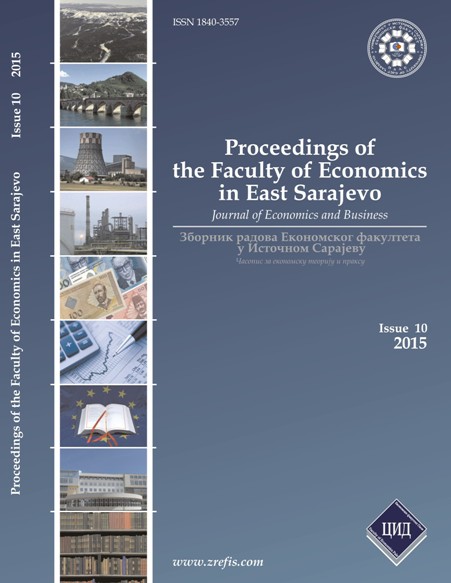STATE INTERVENTION AND MACROECONOMIC MANAGEMENT
DOI:
https://doi.org/10.7251/ZREFIS1510055VAbstract
The monetarists are opponents of government intervention and supporters of free market processes. Keynesians are, conversely, supporters and advocates of government intervention and opponents of uncontrolled operation of the market mechanism. As opponents of government intervention, the monetarists do not agree that it should take countercyclical fiscal policy which can cause greater increase in expenditures of the public sector during the recession, but spending cuts in the period of expansion and that, consequently, the public expenditures continue to increase. However, Tobin, indicating a negative attitude, claims that inflation cannot be used as a reason to reduce the budget, if fiscal policy has little or no effect on income. Undesirability of countercyclical fiscal policy is a logical consequence of the monetarist views on the stability of the sector and better performance of the free market of government intervention in social reproduction.
Rule on a constant rate of monetary expansion eliminates the need for conducting discretionary policy, as the Phillips curve, previously defined, does not allow an optimal combination of inflation and unemployment. Therefore, the use of money (and interest rates and bank loans), as the goal of monetary policy provides economic policy makers to focus on managing variability (i.e. concentrate to money supply), which is beyond the scope of operation of the market, on the one hand, and to let determining the interest rates of bank loans and the free market, on the other hand. Finally, monetarists are extremely concerned about the multiple connections between inflation and expansion of the public sector, for three reasons: first, inflation increases the share of the public sector (and exacts an increase in public expenditure), if a progressive tax system is functioning; second, combating inflation can only indirectly limit the expenditure of the public sector, as the government expenditures partly increase by inflationary financing; and third, financing the budget deficit with the primary issues typically involves inflationary effect, which, if it continues, initiates the process prices and wages control. The paper is based on theoretical analysis of the impact of state intervention in the sphere of stimulating economic recovery, growth and development.

